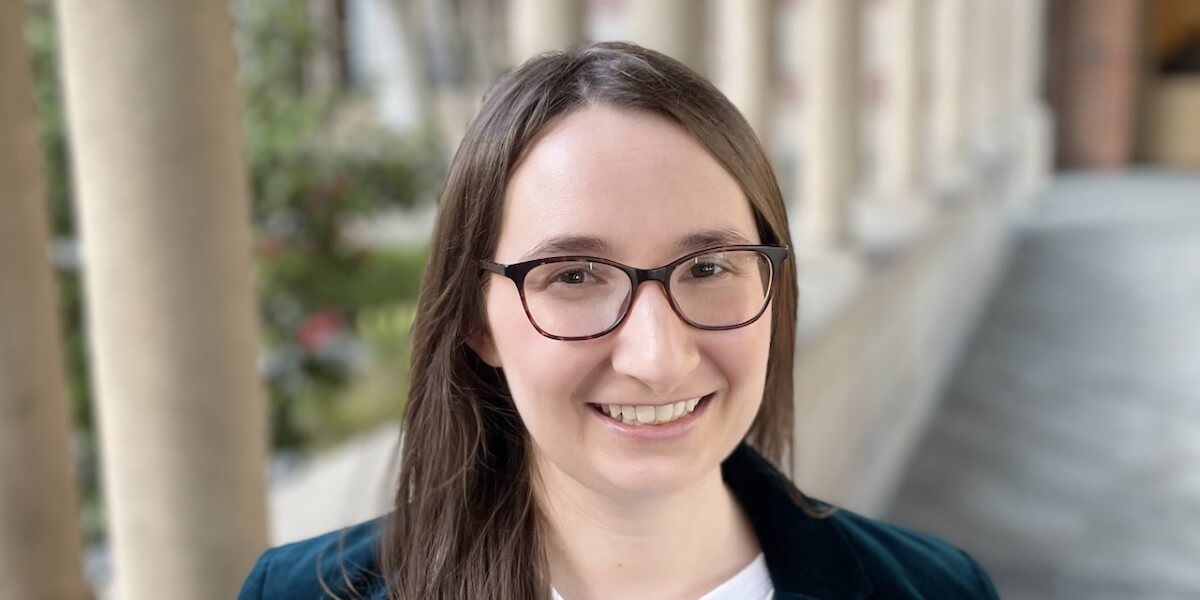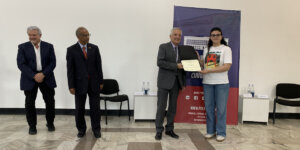
Postdoctoral Scholar Megan Rexius-Hall. Image/Megan Rexius-Hall
Megan Rexius-Hall, a Postdoctoral Scholar at the USC Viterbi School of Engineering, has been awarded the Pathway to Independence Award (K99/R00) by the National Institutes of Health. This dual-phase award provides an opportunity for recipients to receive one to two years of mentored support as a postdoc, as well as up to three years of continued support in an independent research position.
Heart disease is the leading cause of death worldwide, and heart attacks are a common cause of severe cardiac injury. During a heart attack, a blocked coronary artery restricts the flow of blood and oxygen to heart tissue, resulting in localized tissue damage. Rexius-Hall’s research is centered around engineering microphysiological systems, also known as “Heart-on-a-Chip” technology, to study the injury that occurs when a region of heart tissue is starved of oxygen. Rexius-Hall worked under Megan McCain, Chonette Early Career Chair and Associate Professor of Biomedical Engineering, to develop a “Heart-Attack-on-a-Chip”, which is essentially a microscale device that mimics key features of the injury, allowing researchers to understand what happens to a heart post heart attack.
Engineering microphysiological systems is a powerful approach to studying these forms of cardiac injury because aspects of the microenvironment can be tightly controlled, including tissue architecture and oxygen levels. Rexius-Hall says the goal of her research is for her “microphysiological systems to direct future therapeutic strategies to minimize or reverse cardiac damage after a heart attack by identifying druggable targets and serving as a testbed for drug screening.” Her work will help facilitate the development of better therapeutic strategies to minimize damage and promote the repair of injury in the heart.
Regarding her receipt of the Pathway to Independence Award, Rexius-Hall said, “I am grateful for the financial support of the award, and I am grateful for my mentors, advisors, institution, and collaborators who have supported my application and contributed to my training. I am also excited because the initial phase will provide me an opportunity to receive focused training and mentoring in research areas that are new to me such as, for example, the large-scale study of protein cargo in microvesicles secreted from heart cells.”
Published on March 10th, 2023
Last updated on April 12th, 2023












